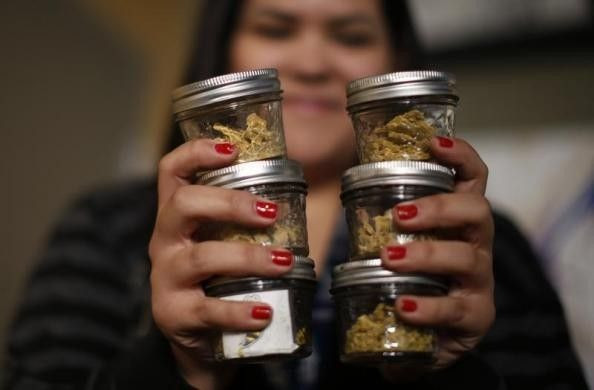Married Couples Who Smoke Pot, Less Likely to Encounter Domestic Violence
The Study Looked at Married Couples Over a Period of Nine Years

A new study conducted by researchers in the University at Buffalo School of Public Health and Health Professions and Research Institute on Addictions (RIA) found that those couples who smoked pot were less likely to engage in domestic violence.
For the study, researchers analysed 634 couples who smoked marijuana and their main aim is to clarify previous studies that failed to provide accurate data about domestic violence among couples who smoked pots. The previous studies looked at couples only at one point of time and did not track them over a period of time; this was a drawback that the present study wanted to rule out to give a better understanding into the issue. The study looked at the married couples over a period of nine years.
They found that the couples, who smoked pot as frequently as two to three times a month, reported less intimate partner violence (IPV) perpetration by husbands. The husband who smoked marijuana predicted less frequent IPV perpetration by wives. Those couples faced the least frequency IPV penetration. The report also stated that the link between low domestic violence and the use of hashish was most evident among women who did not have histories of prior antisocial behaviour.
The study was led by Philip H. Smith, PhD, a recent doctoral graduate of the UB School of Public Health and Health Professions and now associate research scientist in the Department of Psychiatry at Yale University.
The data for the research was collected by lead investigator Kenneth Leonard, PhD, director of the UB Research Institute on Addictions. The grant by the National Institute on Alcohol Abuse and Alcoholism to Leonard and a grant to Smith from the National Institute on Drug Abuse supported the study.
Leonard said that the findings indicated that there were lower levels of aggression towards one partner in the following year. "As in other survey studies of marijuana and partner violence, our study examines patterns of marijuana use and the occurrence of violence within a year period. It does not examine whether using marijuana on a given day reduces the likelihood of violence at that time", he said.
He explained that the lower levels of violence could be attributed to a similar peer group that the partners share and also they would have similar values and social circles. He related to a drinking partnership, stating that this similarity between the partners is responsible in reducing the probability of aggression.
Leonard also said that the study supported the idea that marijuana does not increase but decreases conflict in the relationship. However, before making any more conclusions he said that a deeper examining of the "day-to-day marijuana and alcohol use and the likelihood to IPV on the same day", was required.
The study was published in the online edition of Psychology of Addictive Behaviors in August.




















